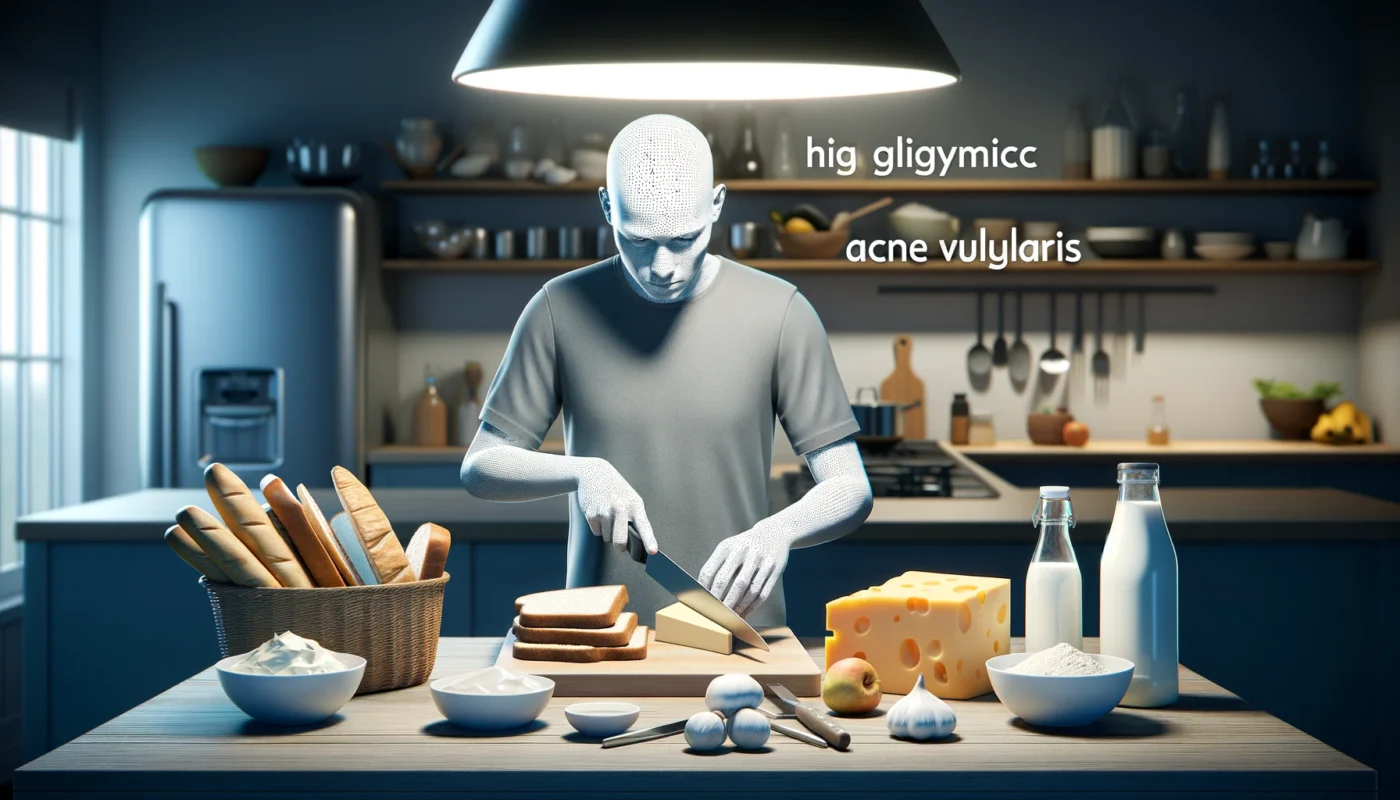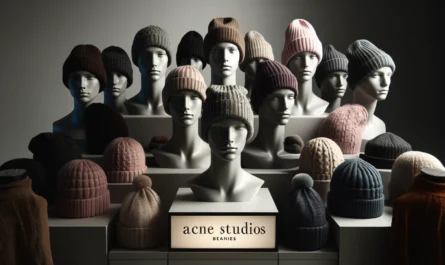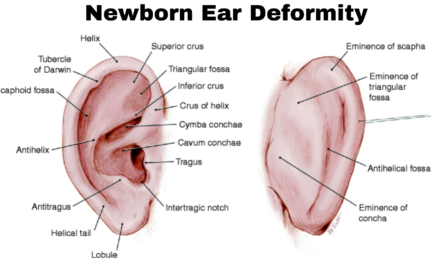Introduction of Acnes vulgaris
Overview of Acnes Vulgaris
Acnes Vulgaris are the most common skin condition in the United States, affecting up to 50 million Americans annually. Characterized by the appearance of pimples on the face, back, and chest, acne is primarily a result of clogged pores and hair follicles due to oil and dead skin cells. It affects nearly 85% of people at some point in their lives, ranging from mild to severe cases that can lead to significant skin scarring. While it most commonly occurs during adolescence, it can persist well into adulthood, presenting varying symptoms and severity over time.
Importance of Addressing Acnes
Addressing acnes vulgaris is crucial not only for cosmetic reasons but also for mental and emotional health. Persistent acne may lead to serious psychological issues, including decreased self-esteem, anxiety, and, in severe cases, depression. Early and effective treatment of acnes vulgaris can prevent the worsening of the condition and the potential for permanent scarring and help individuals maintain a healthier self-image and quality of life. Furthermore, Managing acne scars promotes better skin health and hygiene, which are important aspects of overall wellness.
Definition and Symptoms
Acnes vulgaris, commonly known as acne, is a chronic inflammatory skin condition that involves the blockage and/or inflammation of pilosebaceous units (hair follicles and their accompanying sebaceous glands). Symptoms typically include the presence of:
- Blackheads (open comedones): These are small, dark spots clearly visible on the surface of the skin due to the oxidation of melanin.
- Whiteheads (closed comedones): These appear as small, round, white bumps on the skin’s surface.
- Papules: Small, red, raised bumps caused by inflamed or infected hair follicles.
- Pustules: Papules topped by pus-filled lesions, often red at the base.
- Nodules are harmful lumps that are present on the lower surface of the skin. They are formed by the buildup of secretions deep within hair follic
- Cysts: Deep, painful, pus-filled pimples that can cause scars.
Types of Acnes Lesions
Understanding the different types of acne lesions is key to effective treatment and management. The lesions range from non-inflammatory comedones to inflammatory nodules and cysts:
- 1. Non-inflammatory acne: Includes blackheads and whiteheads which do not usually cause swelling and are more responsive to over-the-counter treatments.
- 2. Inflammatory acne: This includes papules and pustules, which are more likely to cause scarring. They occur when the deeper layers of the skin become involved.
- 3. Severe acne: This condition consists of nodules and cysts and requires more intensive and possibly systemic treatment to reduce inflammation, prevent scarring, and minimize pain.
Causes of Acnes Vulgaris
Genetic Factors
Acne tends to run in families, suggesting a significant genetic predisposition. If one or both parents have acne, their children are more likely to develop it at a similar severity level. Researchers have identified several genes that may influence acne, affecting how skin responds to bacteria, sheds dead skin cells, and produces and manages sebum, the skin’s natural oil. These genetic traits can make certain individuals more prone to acne breakouts than others.
Hormonal Influences
Hormones play a central role in the development of acne. During puberty, hormonal changes cause an increase in androgens (male hormones present in both males and females), which leads to an enlarged sebaceous gland and increased sebum production. This excess oil can clog pores and promote the growth of Propionibacterium acnes. These bacteria are a normal resident on the skin but can contribute to the inflammation associated with acne. Hormonal fluctuations related to menstrual cycles, pregnancy, and the use of birth control or other medications can also trigger or exacerbate acne.
Lifestyle and Environmental Triggers
Various lifestyle and environmental factors can also trigger or worsen acne.
- Diet: High glycemic foods and dairy intake may worsen acne for some people.
Stress: Increased stress is correlated with worsening acne due to the production of hormones such as cortisol, which can increase oil production.
Cosmetics: Heavy oil-based products can clog pores and exacerbate acne.
Climate: High humidity can lead to sweating and moisture, which can block pores.
Pollution: Exposure to dirt, dust, and polluted air can introduce contaminants that clog pores and trigger acne.

Risk Factors for Acnes Vulgaris on Quality of Life
Psychological Effects
The impact of mild acne extends beyond the skin. Chronic acne can lead to significant psychological distress, affecting self-esteem and body image. It is associated with higher rates of anxiety, depression, and other emotional disorders. Individuals with acne may feel embarrassed or self-conscious about their appearance, which can lead to social withdrawal or avoidance behaviors. The Acnes vulgaris visibility of the condition, especially on the face, can exacerbate these feelings, making it crucial for sufferers to receive empathetic and effective treatment.
Social and Emotional Consequences
Acnes Vulgaris can diminish the quality of life socially by affecting interactions with peers and performance in academic or professional settings. Adolescents, who are particularly sensitive to peer perceptions, may suffer more intensely from social stigmas associated with acne. This can decrease participation in social, educational, or professional activities. Emotional health can be compromised, leading to feelings of isolation or rejection based on appearance, impacting overall mental health and daily functioning. Addressing Acnes vulgaris effectively involves treating the physical symptoms and acknowledging and managing its psychological and social impacts on an individual’s life.
Diagnosing Acne Vulgaris
When to See a Dermatologist
It’s advisable to consult a dermatologist for Acnes Vulgaris if over-the-counter (OTC) treatments are ineffective, if the acne is persistent or worsening, or if it is causing significant distress or scarring. Professional guidance is also recommended for those experiencing severe forms of acne, such as nodules or cysts, which are more likely to lead to scarring and require more aggressive treatment. Early consultation can help manage the condition more effectively and reduce the risk of long-term damage to the skin.
Common Diagnostic Techniques
Diagnosis of Acnes Vulgaris is primarily clinical. Dermatologists often assess the skin to determine the types of lesions present, their severity, and distribution. This includes examining for the presence of non-inflammatory comedones and inflammatory lesions like papules, pustules, nodules, and cysts. Sometimes, the dermatologist may take a detailed medical history to identify potential hormonal influences, dietary factors, and family history of acne, which can guide treatment options. Rarely, tests may be conducted to rule out other skin disorders or to assess hormonal levels, particularly if a hormonal imbalance is suspected.
Treatment for Acnes Vulgaris
Over-the-Counter Solutions
OTC treatments are the first line of defense for mild to moderate acne and typically include:
- Topical Treatments: Benzoyl peroxide, salicylic acid, and alpha-hydroxy acids are common ingredients that help to reduce oil, kill acne-causing bacteria, and promote skin cell turnover to prevent clogged pores.
- Cleansers and Soaps: Non-comedogenic, non-acnegenic, or oil-free cleansers can help reduce surface oils and bacteria on the skin.
- Spot Treatments: These products are applied to individual pimples and may contain concentrated amounts of acne-fighting ingredients.
- Moisturizers and Sunscreens: Oil-free and non-comedogenic moisturizers and sunscreens are crucial for maintaining skin health, particularly as some antibiotics for acne treatments can cause dryness and photosensitivity.
Prescription Medications
For moderate to severe acne or acne that doesn’t respond to OTC products, prescription medications may be necessary:
- Topical Retinoids: Medications like tretinoin, adapalene, and tazarotene help prevent the plugging of hair follicles.
- Topical Antibiotics: Clindamycin and erythromycin work to reduce bacteria and inflammation.
- Oral Antibiotics: For more severe acne, oral antibiotics like doxycycline or minocycline may be used to reduce bacteria and fight inflammation.
- Hormonal Treatments: Oral contraceptives or anti-androgens like spironolactone can be effective, particularly in women who experience hormonal acne.
Advances in Medical Treatments
Recent advancements in guidelines of care acne treatment include:
- Laser and Light Therapies: These can reduce the presence of P. acnes bacteria and decrease oil production or promote skin healing.
- Chemical Peels: Solutions applied to the skin primarily help to regenerate a smoother skin surface.
- Injection of Corticosteroids: For severe acne, such as cysts, corticosteroid injections can help reduce inflammation and prevent scarring by diminishing the lesion quickly.
Each type of treatment has its considerations, and what works for one person might not work for another. It is essential to discuss all possible options with a dermatologist who can tailor a treatment plan based on the individual’s specific type of acne and skin characteristics.
Effective Home Remedies
Many people find relief from acne through simple home remedies that can complement conventional treatments:
- Tea Tree Oil: Known for its anti-inflammatory and antimicrobial properties, applying a 5% tea tree oil solution can reduce the severity of acne.
- Green Tea Extract: Due to its antioxidant properties, applying lotion or cream containing green tea can help reduce sebum production and acne.
- Aloe Vera: Mixing aloe vera gel with tea tree oil or other treatments can soothe the skin and help reduce inflammation and redness.
- Honey and Cinnamon Mask: Both ingredients are known for their anti-inflammatory and antibacterial properties, making them useful in healing acne when used as a facial mask.
- Apple Cider Vinegar: Diluted apple cider vinegar, used as a toner, can help kill bacteria and reduce the appearance of acne due to its acetic acid content.
Diet and treat Acne
Some important factors are the following
- Low-Glycemic Diet: Eating foods that cause a lower increase in blood glucose may help reduce acne outbreaks. These include whole grains, legumes, and fresh vegetables.
- Dairy and High-Glycemic Foods: Some studies suggest that milk and high-glycemic foods like sugary snacks and beverages can exacerbate acne in susceptible individuals.
- Zinc and Omega-3 Fatty Acids: Zinc-rich foods (like nuts, seeds, and seafood) and omega-3 fatty acids (such as fish and flaxseeds) can help reduce inflammation and improve acne symptoms.
Exercise and Skin Health
Regular exercise promotes healthy circulation and helps to reduce stress, which can be beneficial for skin health:
- Increased Blood Flow: Exercise increases blood circulation, which helps nourish skin cells and keep them vital. It also helps remove waste products, including free radicals, from working cells.
- Stress Reduction: Lowering stress through exercise can result in lower levels of acne-related hormones like cortisol.
- Post-Workout Care: It’s important to wash the face and body immediately after exercise to prevent sweat and bacteria from clogging pores. Visit my other post
Prevention Strategies & treat acne
Daily Skincare Regimen
Maintaining a consistent skincare routine is crucial for preventing acne flare-ups:
- Cleansing: Washing your face twice daily with a mild cleanser to remove excess oil and dirt.
- Exfoliating: Gentle exfoliants can help remove dead skin cells and prevent clogged pores. However, they should be used sparingly (1-2 times a week) to avoid irritation.
- Moisturizing: Hydrate the skin with an oil-free moisturizer to maintain skin barrier function and prevent dryness.
- Sun Protection: Use non-comedogenic sunscreen daily to protect the skin from harmful UV rays that can exacerbate acne.
Tips to Prevent Acne Flare-Ups
- Avoid Touching Your Face: Hands can transfer oils and bacteria to your face, blocking pores and leading to breakouts.
- Choose Makeup Carefully: Opt for non-comedogenic makeup products that do not clog pores.
- Manage Stress: Engage in stress-reducing activities like yoga, meditation, or deep-breathing exercises as stress can exacerbate acne.
Implementing these home remedies and lifestyle changes can provide a solid foundation for managing acne and maintaining healthy, clear skin.
FAQs on treatment for Acne Vulgaris
1. What causes acnes vulgaris?
Acnes vulgaris is caused by several factors, including hormonal changes, genetics, clogged pores due to oil and dead skin cells, and bacteria.
2. Can diet affect Acnes Vulgaris?
Yes, certain foods might worsen acne in susceptible individuals. Diets high in sugar and dairy products have been linked to increased acne severity, while low-glycemic diets rich in fruits and vegetables may help reduce outbreaks.
3. What are the best over-the-counter treatments for Acnes Vulgaris?
Over-the-counter treatments effective for Acnes Vulgaris include products containing benzoyl peroxide, salicylic acid, and alpha-hydroxy acids. These help reduce oil, kill bacteria, and promote skin cell turnover.
4. When should I see a dermatologist for acne?
You should see a dermatologist if your acnes vulgaris is persistent, worsening, causing significant distress, or not responding to over-the-counter treatments.
5. How can I prevent acne flare-ups?
Preventing acne flare-ups can be managed by maintaining a regular skincare regimen, using non-comedogenic products, avoiding touching your face, managing stress, and keeping hydrated.
Conclusion
Understanding and managing acnes vulgaris involves recognizing the underlying causes, adopting effective treatment strategies, and implementing preventive measures. By integrating medical treatments and lifestyle adjustments, individuals can significantly improve the health of their skin. It’s important to consult a dermatologist to develop a tailored treatment plan. With the right information and support, managing adult acne or acne vulgaris becomes more achievable and less daunting, paving the way toward clearer skin, greater confidence, and improved quality of life.



